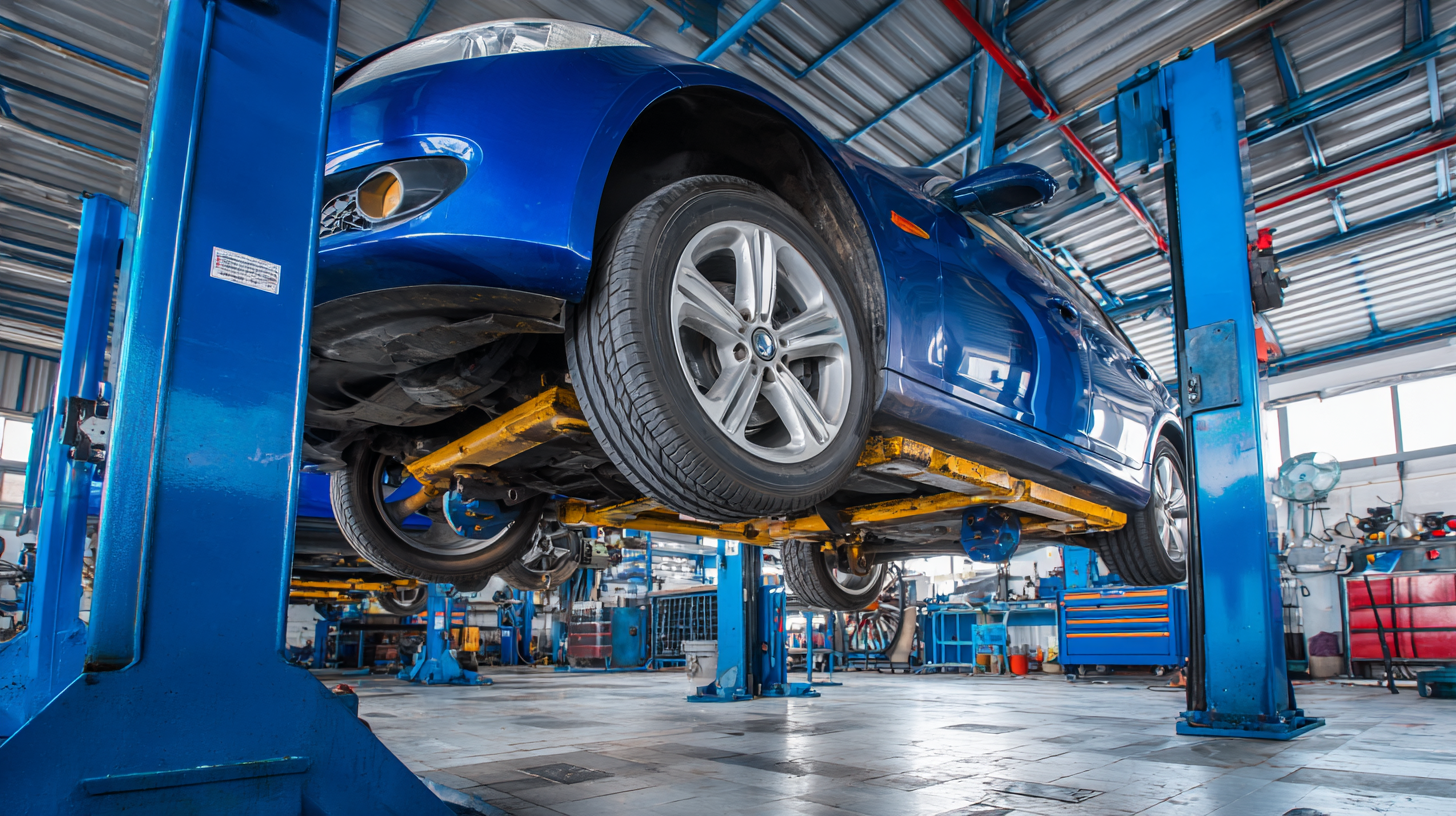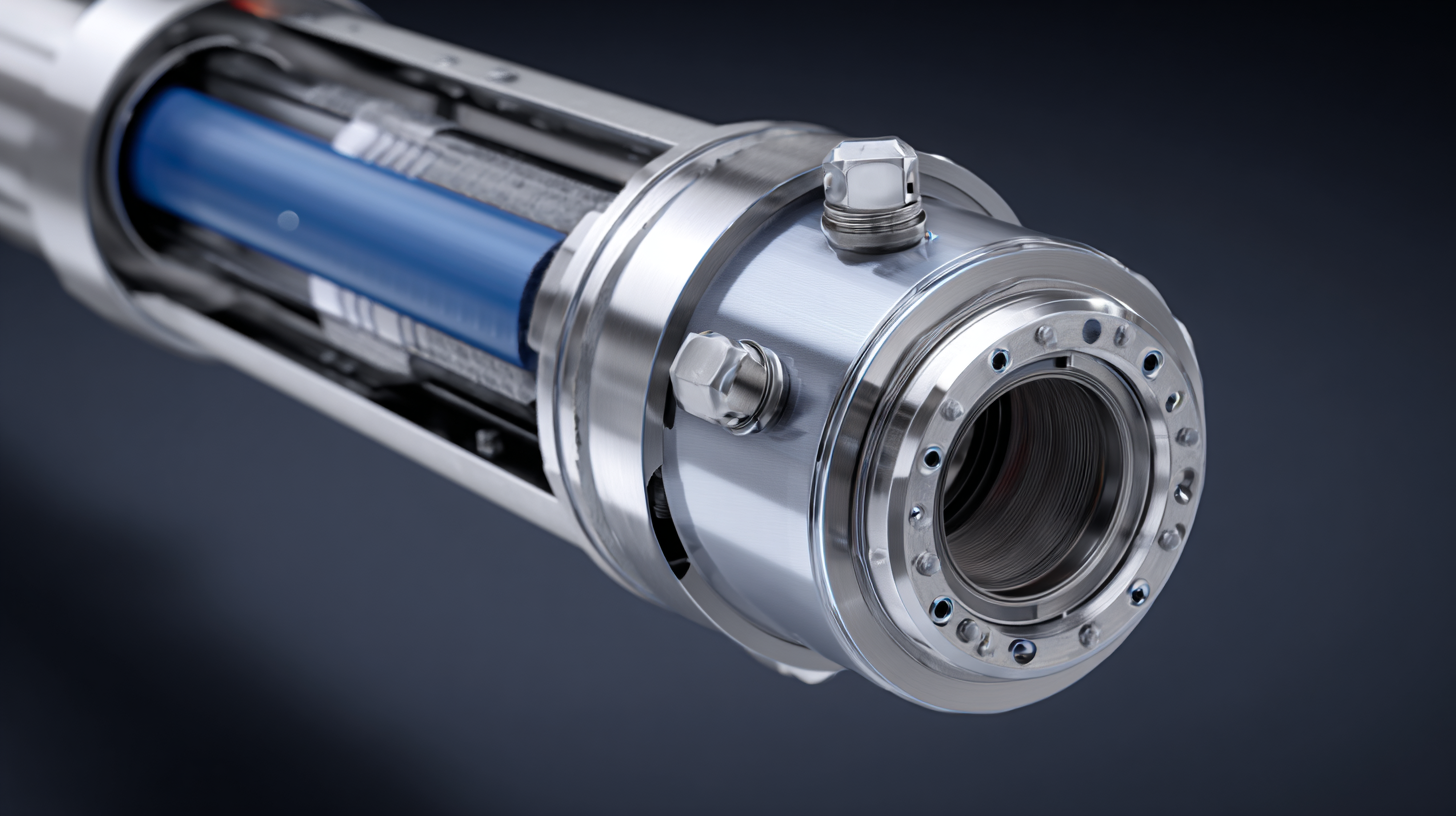Enhancing After-Sales Service: Unmatched Repair Costs with the Best Filtration Technology
In today's competitive marketplace, ensuring customer satisfaction extends far beyond the initial sale; it hinges significantly on after-sales service. As manufacturers strive to differentiate themselves, unmatched repair costs and superior quality have become paramount. This is where cutting-edge filtration technology plays a pivotal role. Not only does it enhance the longevity and reliability of products, but it also significantly reduces maintenance expenses, ensuring that consumers receive exceptional value post-purchase. The commitment to "Made in China" excellence resonates globally as companies leverage innovative filtration solutions to streamline operations and bolster customer loyalty. By focusing on these advanced technologies, businesses not only enhance their service offerings but also reinforce their brand's reputation for quality assurance.

This blog delves into the importance of integrating top-tier filtration technology into after-sales strategies, revealing how it transforms customer experiences and fosters enduring relationships.
Understanding the Importance of After-Sales Service in Competitive Markets
In today’s highly competitive markets, after-sales service has emerged as a crucial differentiator for businesses aiming to retain customer loyalty and enhance their brand reputation. Companies that excel in providing exceptional after-sales support not only cultivate a strong relationship with their customers but also create a significant competitive edge. Understanding customer needs and promptly addressing post-purchase issues can transform a one-time buyer into a lifelong advocate for the brand.
Moreover, the integration of advanced technologies, particularly in filtration systems, exemplifies a proactive approach to after-sales service. By leveraging the best filtration technology, businesses can assure customers of superior quality and efficiency, ultimately leading to reduced repair costs. This not only alleviates customer pain points but also demonstrates a commitment to quality and reliability. As a result, customers are more likely to choose a brand that prioritizes effective after-sales service, making it an essential component of any successful business strategy in today's market landscape.
Key Factors Affecting Repair Costs in Filtration Technology
In the realm of filtration technology, several key factors significantly impact repair costs, making it essential for businesses to be informed and proactive. According to a report by the Filtration Industry Analyst, maintenance and repair costs can account for as much as 30% of a company’s total operational expenses. One of the primary drivers of these costs is the quality of the filtration systems in use. Systems that utilize superior filtration technology tend to require less frequent repairs, resulting in long-term savings. For instance, advanced ceramic filtration systems boast an impressive lifespan of up to 20 years, compared to traditional media filters, which may require replacement every few months.
Another critical aspect influencing repair costs is the type of contaminants being filtered. As highlighted in a recent study by the Global Filtration Association, systems designed for high-load environments—such as those involving heavy particulate matter or corrosive chemicals—can lead to increased wear and tear. This not only drives up repair and replacement expenses but also affects equipment downtime, impacting overall productivity. By investing in higher-quality filtration solutions that are tailored to specific operational conditions, businesses can mitigate these costs and optimize their after-sales service performance.

Industry Standards for Filtration Technology and Their Impact on Service
The filtration technology industry is undergoing significant advancements, particularly in response to increasingly stringent industry standards. These standards are crucial for ensuring that filtration systems meet safety and efficacy guidelines, thereby safeguarding public health and the environment. As the Global Pharmaceutical Membrane Filtration Market is projected to reach USD 27,620 million by 2033 at a CAGR of 13.4%, the demand for high-quality filtration solutions is evidently on the rise. This surge is driven by the need for reliable systems that efficiently remove contaminants, which is integral for sectors such as pharmaceuticals, water treatment, and industrial applications.
The implications of these industry standards extend beyond compliance; they influence the evolution of service offerings, including after-sales support. Companies are now compelled to innovate, not only enhancing their filtration technologies but also optimizing their repair services. For instance, adopting advanced filtration systems can lead to lower repair costs and minimize downtime, thus improving operational efficiency. As a result, businesses are expected to prioritize investments in cutting-edge filtration solutions that align with regulatory demands, paving the way for enhanced longevity and performance in their after-sales service offerings.
Innovative Approaches to Improve After-Sales Support Efficiency
In today's competitive landscape, enhancing after-sales service is crucial for customer satisfaction and brand loyalty. One innovative approach to improving after-sales support efficiency is the integration of advanced filtration technology. By utilizing cutting-edge filtration systems, businesses can significantly reduce repair costs and downtime, which are often a major pain point for customers. This not only improves the quality of service but also creates a streamlined process that allows customer service representatives to focus on providing value rather than managing logistics.
Moreover, adopting a proactive maintenance strategy facilitated by advanced filtration solutions can further bolster after-sales support. Regular monitoring and early detection of potential issues ensure that problems are addressed before they escalate, leading to a more efficient repair process. This reduced response time not only enhances the overall experience for customers but also reinforces the reliability and performance of the products being serviced. As companies continuously seek out innovative methods to elevate their after-sales service, embracing technology will undoubtedly play a pivotal role in transforming customer interactions into opportunities for long-lasting relationships.
Enhancing After-Sales Service: Unmatched Repair Costs with the Best Filtration Technology - Innovative Approaches to Improve After-Sales Support Efficiency
| Service Type | Repair Cost ($) | Filtration Technology | Response Time (hrs) | Customer Satisfaction (%) |
|---|---|---|---|---|
| Filter Replacement | 45 | Advanced HEPA | 24 | 90 |
| Regular Maintenance | 75 | Carbon Filter | 48 | 85 |
| Emergency Repair | 120 | UV-C Technology | 12 | 95 |
| Annual Check-up | 100 | Multi-layer Filter | 36 | 88 |
Maximizing Customer Satisfaction Through Enhanced Repair Processes
In today's competitive landscape, delivering exceptional after-sales service is paramount for gaining customer loyalty. Companies that invest in improving their repair processes not only reduce turnaround times but also enhance customer satisfaction. By incorporating advanced filtration technology, businesses can ensure that repairs are completed more efficiently while maintaining high-quality standards. This commitment to improved service can drastically minimize repair costs and lead to a loyal customer base.

Tip: Implement a streamlined communication channel for customers to track the status of their repairs. Frequent updates can alleviate anxiety and enhance the overall customer experience.
To truly maximize satisfaction, companies should prioritize training their staff on the latest technologies and repair techniques. A knowledgeable and skilled workforce is essential for executing effective repairs and addressing customer concerns promptly. Ensuring that your repair team is well-equipped with both technical and customer service skills will not only expedite the repair processes but also improve customer relationships.
Tip: Consider gathering customer feedback after each repair service. This insight can help identify areas for improvement and allow you to make necessary adjustments to enhance the overall service experience.